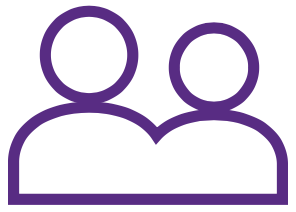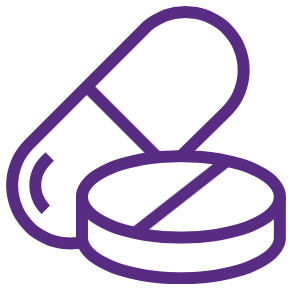THE FACTS

- Chlamydia is one of the most common sexually transmitted infections.
- It is caused by bacteria called Chlamydia trachomatis.
- Chlamydia can be passed from one person to another during condomless sex (vaginal, oral or anal).
- If you are pregnant and have chlamydia, you can give it to your baby during childbirth.
- If you have an STD, you have a greater risk of getting HIV or transmitting it to someone else.
- Using a condom every time you have sex can protect you from chlamydia.

- Most people don’t have symptoms. That’s why testing is important.
- Symptoms can include pain or burning with peeing, pain with sex, anal pain, or abnormal discharge from the penis, vagina, or anus.
- Chlamydia can cause unusual vaginal bleeding.
- Chlamydia can cause pain and swelling in the testicles, and infection of the uterus can cause belly pain.
- Untreated chlamydia can cause infertility.

- Chlamydia tests are done on swabs from a site where you have sex (penis, vagina, mouth, or anus) or on urine.
- Sexually active people living with HIV or people with more than one sex partner should be tested at least once a year.
- Sexually active people with female gender at birth who are less than 25 years old should be screened once a year.
- Sexually active men or transwomen who have male partners should be tested at least once a year and should consider testing up to every 3 months.
- Persons who have symptoms, are exposed to a partner with chlamydia, or who are pregnant should be examined and tested by a health care provider.

- Chlamydia is treated with antibiotics (medicine) you take by mouth.
- Your sex partners in the last 60 days also need to be tested and treated.
- Follow the instructions from your health care provider about when you can have sex again.
- Everyone with a positive chlamydia test should get tested for syphilis and HIV.
- Repeat chlamydia testing 3 months after being treated for a positive test.
- Free treatment is provided at the Denver Sexual Health Clinic. You can schedule a visit by calling 303-602-3540.
